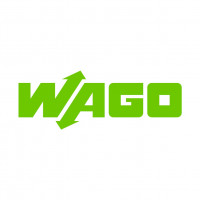Streamlining PCB Connections with Pluggable Terminal Blocks in Electronics Manufacturing

Strong 8k brings an ultra-HD IPTV experience to your living room and your pocket.
Manufacturers often face issues like limited space, the need for secure connections, and the pressure to reduce assembly time. Addressing these challenges requires innovative solutions, and Pluggable Terminal Blocks have emerged as a game-changer. These versatile components offer a practical approach to streamlining PCB connections while enhancing reliability and efficiency in production processes.
Challenges in PCB Connections
Modern electronics manufacturing involves designing increasingly compact devices with complex functionality. As PCB designs shrink to accommodate more features, the challenge of establishing reliable electrical connections intensifies. While effective, conventional soldering methods can be time-consuming, error-prone, and unsuitable for modular designs requiring frequent assembly or disassembly.
Pluggable PCB terminal blocks present a solution to these issues. By enabling plug-and-play connectivity, they simplify the connection process, reduce errors, and support modular designs, making them an indispensable component in the electronics manufacturing industry.
Advantages in PCB Design
1. Space-Saving Features
Pluggable terminal blocks are specifically designed to address the spatial constraints of modern PCB designs. They come in vertical and horizontal mounting options, allowing manufacturers to optimise the use of available space. Vertical mounts are ideal for compact designs, enabling high wiring density without increasing the footprint, while horizontal mounts provide easy access for wiring and maintenance.
2. Design Flexibility
One key advantage of pluggable terminal blocks is their adaptability to various design requirements. They facilitate modular PCB designs by allowing components to be connected and disconnected easily. This modularity is particularly useful in applications that require frequent upgrades or maintenance, as it reduces the need for complete system overhauls.
Simplifying Assembly with Plug-and-Play Connectors
1. Ease of Manufacturing
Pluggable terminal blocks drastically simplify the manufacturing process. Unlike traditional soldered connections, which require precision and extensive labour, these connectors allow for quick and tool-free assembly. By reducing soldering time, they streamline production workflows, enabling manufacturers to meet tight deadlines without compromising on quality.
2. Error Reduction
Even minor misalignments during assembly in electronics manufacturing can lead to faulty connections and system failures. Pluggable terminal blocks are equipped with keyed connectors, which ensure proper alignment and prevent incorrect connections. This feature not only minimises errors but also enhances the reliability of the final product.
Integration into SMT and THR Processes
1. Compatibility with Automated Processes
The compatibility of pluggable terminal blocks with surface-mount technology (SMT) and through-hole reflow (THR) processes makes them perfect for automated manufacturing workflows. These connectors are designed to withstand the high temperatures of soldering processes, ensuring secure and durable connections. This integration reduces the need for manual intervention, improving overall manufacturing efficiency.
2. Efficiency Gains
The use of pluggable terminal blocks translates directly into time and cost savings. Manufacturers can produce higher-quality products in less time by streamlining assembly and reducing errors. This efficiency improves production capacity and helps manufacturers maintain a competitive edge in the market.
Sustainability and environmental impact
1. Eco-Friendly Manufacturing Practices
Pluggable terminal blocks contribute to this goal, particularly those made with eco-friendly materials and processes. Manufacturers can reduce their carbon footprint by choosing connectors that require less energy to produce and are made from recyclable materials.
2. Reducing Electronic Waste
The durability and reusability of pluggable terminal blocks also significantly contribute to minimising electronic waste. Their modular design facilitates easy repairs and upgrades, helping extend the lifecycle of electronic products, reducing the need for frequent replacements and thereby lessening the volume of tech waste.
Final Thoughts
The demand for efficient and reliable PCB connections in electronics manufacturing has never increased. Pluggable PCB terminal blocks address critical challenges by offering space-saving designs, enhanced flexibility, and compatibility with automated processes. Their ability to simplify assembly, reduce errors, and improve efficiency makes them essential in modern electronics production.
Note: IndiBlogHub features both user-submitted and editorial content. We do not verify third-party contributions. Read our Disclaimer and Privacy Policyfor details.



